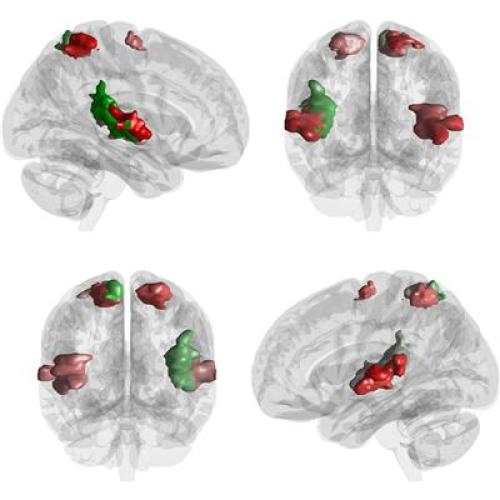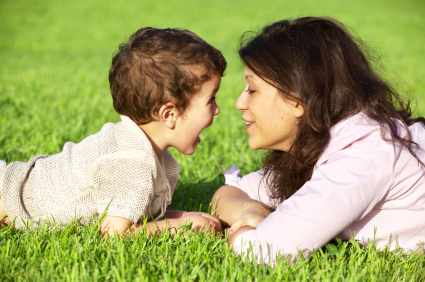We love music—everything about it. Of course, we love how music and learning go together in Kindermusik classrooms and in homes around the world when parents support cognitive development in children through musical activities. We also love how that certain lullaby or silly nonsense song can calm both a child and a parent during one of those moments. Perhaps one of our favorite things we love about music is its ability to support healthy child brain development.
What our brains look like when we listen to music

When we listen to and engage in musical activities, our brains light up. Now, new research gives us pictures of what our brains look like when we listen to music. Researchers from Finland, Denmark, and the United Kingdom, used brain imaging and computer modeling to see just want happens to our brains when we listen to music. Led by Dr. Vinoo Alluri, the research team recorded the brain responses of adult participants while they listened to a variety of music, including Vivaldi, Miles Davis, and The Beatles. During the process, they also tracked the musical components, such as timbre, rhythm, and tonality.
The team discovered that listening to music activates the auditory, motor, and limbic regions of the brain as well as the regions of the brain used for self-referential appraisal and aesthetic judgments. Interestingly, our brains respond differently between vocal and instrumental music. When listening to music with lyrics, the brain shifts the processing of musical features towards the right auditory cortex to better process the lyrics.
“The new method provides a powerful means to predict brain responses to music, speech, and soundscapes across a variety of contexts,” explained Dr. Vinoo Alluri in a press release.
Musical variety supports child brain development
Throughout the Kindermusik experience, we deliberately introduce children to a wide variety of musical genres to give them a greater understanding of what is possible through music. One month we may explore the precision of classical music. The next month you and your child may experience the value of improvisation and emotional expression while we play around with jazz. Together we may also move and play along with drumming songs from Africa and South America or dance around to music from New Zealand, China, or France.
Exposure to a variety of sounds and rhythms is critical to cognitive development in children. Varied exposure leads to language proficiency, spatial reasoning, and temporal reasoning. It also increases understanding of moods, emotions, and other cultures. Read more about the four surprising ways your child benefits from a variety of music.
Better yet, find a local educator and come experience it for yourself. Try a free class today!



